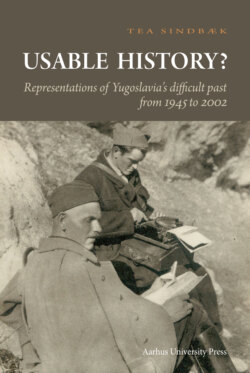Читать книгу Usable History? - Tia Sindbaek - Страница 21
На сайте Литреса книга снята с продажи.
Partisan crimes
ОглавлениеIn Montenegro, Herzegovina and eastern Bosnia, particularly during the first years of the war, Partisans engaged in organised terror against civilians, which was mainly directed against what they saw as pro-Chetnik villages or potential class enemies. Sometimes Partisans were also involved in unruly violence and looting.21 Later, when the Partisan detachments were under stronger central control, and because the terror proved counter-productive, this policy was abolished. These ‘Left deviations’, as the revolutionary terror and early attempts at establishing a new revolutionary order were euphemistically called, remained one of the sensitive issues of communist historiography.
In the Spring of 1945, the victorious Partisan Army mercilessly eliminated their enemies. Large groups of anti-communist soldiers – Croatian and Muslim Ustasha and home guards, Slovenian collaborationist forces and Chetniks, probably also accompanied by some civilians, attempted to surrender to the Allies in Austria. They were rejected, as the Yugoslav army was by then considered an allied force and, according to agreements, war prisoners were to surrender to the local allied authorities. Many were killed, either in vicious fighting against the Partisans; at the hands of the Partisans after having surrendered; or in forced marches and prison camps in Yugoslavia. This settling of accounts with the Partisans’ political and military opponents cost tens of thousands of lives.22
These atrocities and massacres from the side of the communist forces were to become central issues decades later in re-evaluations of communist history. The killings at the border were later referred to as the Bleiburg massacre or the Bleiburg tragedy after the Austrian border town Bleiburg.
